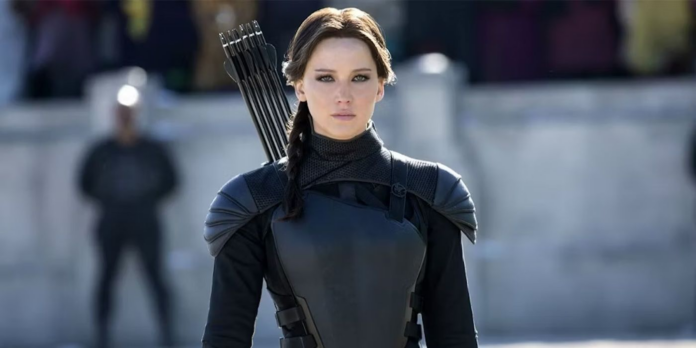The Hunger Games’ two-part finale proved a divisive decision, and it should have warned another popular young adult franchise that splitting its final movie was a bad idea. The Hunger Games movies are overwhelmingly considered successful, and both Mockingjay installments made hundreds of millions at the box office. Even so, the choice to split the adaptation of Mockingjay into two parts was one that was met with criticism, and Mockingjay – Part 1 suffered as a result.
Unfortunately, The Hunger Games is far from the only franchise to divide its final movie into two — and some aren’t even waiting until the last installment to try this approach. Given the complaints about Mockingjay, one would think other YA dystopian series of the 2010s would have proceeded with caution. However, the Divergent series attempted the same strategy when adapting Allegiant. It didn’t work in the final movie’s favor, suggesting the franchise should have paid closer attention to Mockingjay’s response.
Mockingjay: Part 1’s Problems Proved That A Two-Part Finale Wasn’t A Good Idea
The First Part Of The Hunger Games Finale Was Anticlimactic & Poorly Paced
Close
The Hunger Games splitting its final movie into two parts created problems for Mockingjay – Part 1, as the first portion of the film had pacing issues. The Mockingjay book had a standard structure, with the action increasing as the narrative went on, then coming to a head with the story’s resolution. Unfortunately, Suzanne Collins’ source material wasn’t meant to be consumed in halves. Mockingjay – Part 1 lacked much of the excitement from the book, as it dragged the story out and saved many of the more interesting parts for Part 2.
Even Katniss’ iconic ‘If we burn’ monologue couldn’t stop it from feeling like a slog, especially when the Games-esque portion of the novel didn’t happen until Mockingjay – Part 2.
In addition to more climactic scenes occurring in Mockingjay – Part 2, Katniss and Peeta also didn’t interact much in the first half of the finale. This made it more difficult to get through, as did the fact that much of the first installment saw Katniss maneuvering the politics of District 13. Even Katniss’ iconic “If we burn” monologue couldn’t stop it from feeling like a slog, especially when the Games-esque portion of the novel didn’t happen until Mockingjay – Part 2. This left the prior movie feeling like setup more than anything else.
Divergent Splitting The Final Book Into Two Movies Doomed The Franchise
Ascendant Was Never Actually Made, Leaving The Series Unfinished
Mockingjay – Part 1’s narrative problems didn’t prevent Part 2 from getting made, nor did it stop other franchises from following the same setup. Unfortunately for the Divergent series, it followed in the prior dystopian franchise’s footsteps — but with more devastating results. The decision to split the final book, Allegiant, into two parts resulted in the story never receiving a conclusion. Ascendant was canceled after Allegiant had lackluster returns at the box office. And while there were initially discussions about continuing the story in TV form, it never happened.
Given the popularity of Veronica Roth’s books, this was disappointing for those excited to see Tris and Four’s entire story brought to the screen. And Allegiant could have learned from The Hunger Games, as the third movie suffered many of the same problems as Mockingjay – Part 1. Another adaptation that wasn’t meant to be split in two, Allegiant had a slow beginning and lack of action throughout its run. The Divergent series was obviously saving the most exciting developments for its finale, but because it split the final book into two, that conclusion never happened.
Two-Part Movies Are Very Risky, And Hollywood Continues To Proves It
It’s Difficult To Pull Off This Approach
Close
If The Hunger Games and Divergent series prove anything, it’s that it’s difficult for Hollywood to pull off two-part movies. Of course, that hasn’t stopped studios from attempting it. A number of recent films have been split into two parts, including 2023’s Fast X, Across the Spider-Verse, Horizon, and Rebel Moon (which is intended to be even more than two parts). This has varying degrees of success. While a film like Across the Spider-Verse builds excitement with its ending, it’s still risky to leave audiences on a cliffhanger for years. It’s possible they’ll lose interest in that time.
Related 6 Upcoming Movies That Will Suffer After Being Split Into Two Parts Hollywood’s strategy of splitting a movie into two parts is starting to backfire, and these upcoming films may be hurt by only being half a story.
In the case of movies like Horizon or Rebel Moon, it’s even more risky, as they aren’t sequels. Both first movies proved somewhat underwhelming, which raises questions about whether viewers will even check out their follow-ups. This is why it’s often better to tell a full story with a film rather than dragging it out in the hopes of greater returns. While the two-part method does work occasionally — Avengers: Infinity War and Avengers: Endgame being an example — it requires the right approach. More often than not, such projects end up like The Hunger Games’ finale instead.


